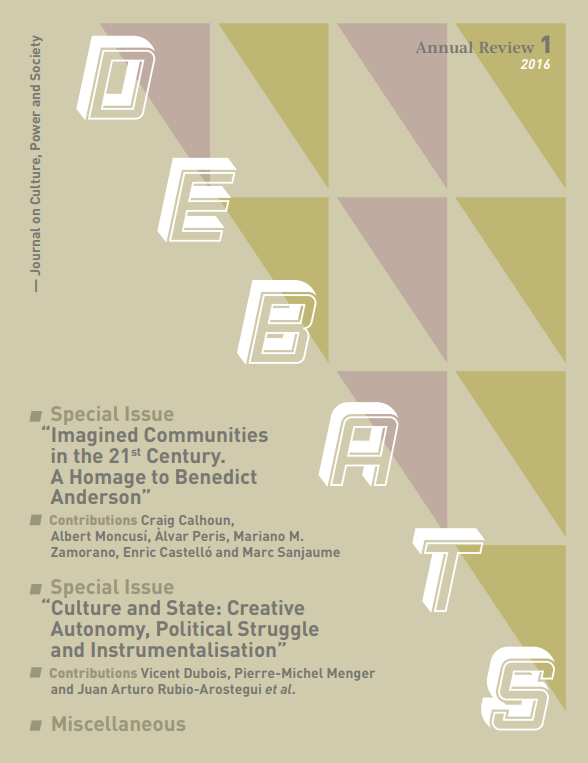Imagining the Nation through Television Fiction: Memory, Proximity and Daily Life
Abstract
This paper reflects on the importance of television (especially TV fiction)
in the imaginary of Nations. With this end in view, we first look at the role
played by television as an instrument of socialization, as well as its ability
to consolidate and naturalise an imaginary based on the dissemination
of various ideological representations of reality. Second, we explore the
ritual function of television and its incarnation in daily life, routines, and
the family setting of the broad masses. It is a dimension that studies
on the nation and nationalism are increasingly taking into account as
central factors in the process of national construction — especially
regarding the fostering of a sense of belonging and in imagining an
abstract community. Last but not least, we focus on television fiction
because it makes up the lion’s share of the programmes in most TV
stations and is probably the most relevant narrative we can find in
contemporary societies. Among the various discursive strategies
shaping this definition of the nation, we examine the construction of
the story of the nation’s past and present (in which the stories are set
within nationally-defined regions and spheres) and the tactical resort
to cultural and linguistic proximity
Downloads
Downloads
Published
How to Cite
Issue
Section
License
Without prejudice to the provisions of article 52 of Spanish Law 22/1987 of November 11 on Intellectual Property, BOE (official state bulletin) of November 17, 1987, and pursuant to said legislation, the author(s) surrender(s) free of charge its rights of edition, publication, distribution and sale of the article, for its publication in Debats. Journal on Culture, Power and Society.
Debats. Journal on Culture, Power and Society is published under the Creative Commons license system in accordance with the «Recognition - Non-Commercial (by-nc) modality: The generation of derivative works is permitted provided that commercial use is not made. Nor can the original work be used for commercial purposes».
Thus, when the author submits his/her contribution, he/she explicitly accepts this assignment of publishing and publishing rights. Authors also authorize Debats. Journal on Culture, Power and Society to include their work in an issue of the journal to be distributed and sold.











